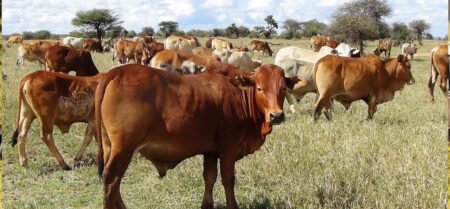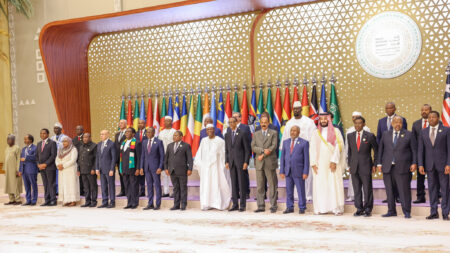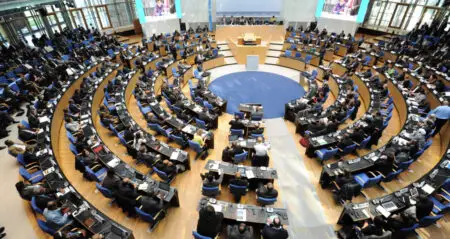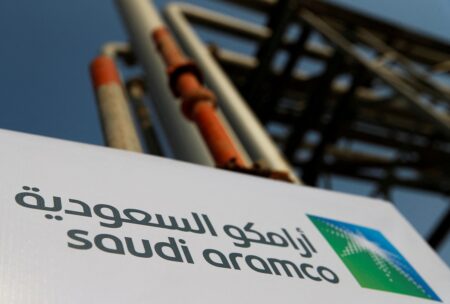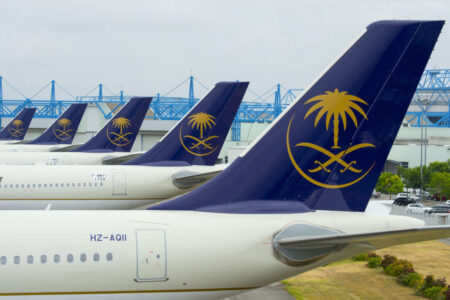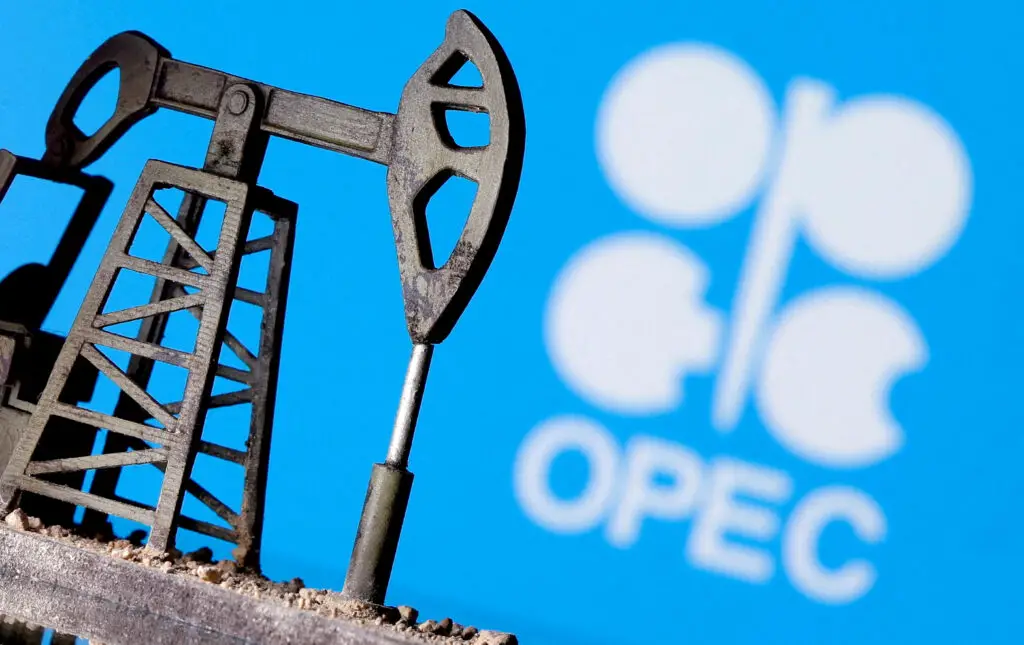- The most stressful cities to live in 2024 exposed
- Tech ventures can now apply for the Africa Tech Summit London Investment Showcase
- State of journalism survey 2024 shows media houses are lagging in AI adoption
- Forum sets the stage to unleash global potential for startups during AIM Congress 2024
- Consumer Expenditure in Kenya on a Six-Month High
- Kenya Ports Authority Invests $31 Million in State-of-the-Art Cranes for Lamu Port
- Fintechs should develop products that address the exact needs of their customers
- New report exposes alarming rise in remote desktop protocol fraud by cybercriminals
Browsing: Saudi Arabia
- President Samia strikes deal to increase volume of meat export to Saudi Arabia.
- Tanzania meat export segment is often undermined by quality, which is attributable to pests and diseases, a challenge the nation seeks to fix by rolling out mass livestock vaccination campaign.
- At least three Saudi Arabian companies plan to invest in Tanzania’s livestock, and fodder production sub-sectors.
Tanzania is rolling out livestock vaccination campaign as part of a raft of measures geared at enhancing the quality and volume of meat export. Although the East African nation boats of the third largest livestock herd in Africa, the quality of meat export is often hampered by persistent pests and diseases.
“We want every livestock keeper to vaccinate, and we will develop a specific vaccination schedule for each livestock disease,” said Livestock and Fisheries Minister Abdallah Ulega.
Policymakers in Tanzania seek to triple meat export by 2030 a goal that is …
- The Saudi Arabia-Africa Summit has reaffirmed bilateral relations between the two regions.
- Saudi Arabia announced a 600 billion euro wealth fund to support Africa’s development.
- Through the Green Middle East Initiative, Saudi Arabia is assisting several African countries in planting over 50 billion trees to reduce more than 10% of global carbon emissions.
Saudi Arabia has pledged to increase its investment in Africa through its 600 billion euro wealth fund and its Public Investment Fund. The Kingdom’s Investment Minister, Khalid Al-Falih, made the pledge at the opening of the Saudi Arabia African Economic Conference in Riyadh on November 10.
Khalid Al-Falih stated that Saudi Arabia has resolved to make some “game-changing” investments in Africa. To kick off the investment pledge, Saudi Arabia signed preliminary energy agreements with Nigeria, Senegal, Chad, and Ethiopia.
In the same vein, Saudi Arabia has also pledged to help reduce Africa’s debt burden, with Ghana set …
International delegates have gathered in Nairobi, Kenya, hoping to make further progress towards a landmark treaty to address global plastic pollution. The meeting is happening at the UNEP headquarters as negotiators seek to solve the scourge of pollution resulting from more than 430 million metric tonnes of plastic waste produced annually.
More than 2,000 delegates have attended the global plastics summit. They include representatives from environmental organisations, the oil and gas industry, and civil society groups. The delegates in Nairobi will mull two options: a wide-ranging strategy targeting plastics production or a limited approach focussed on waste management.…
- The Nigeria-Saudi Business Council could see the Middle Eastern country fund several sectors of the West African economy.
- Through the council, the Kingdom of Saudi Arabia plans to replicate various investments made in Pakistan, Indonesia, and India in Nigeria.
- Africa has increasingly become the subject of high competition between global economic powers.
Nigeria anticipates multi-billion-dollar “immediate” investment flows from the Kingdom of Saudi Arabia. This follows the signing of an agreement between the countries to establish a business council. The Nigeria-Saudi Business Council could see the Middle Eastern country fund several sectors of the West African economy. These include technological advancements, telecommunications, energy, oil and gas, and agriculture.
The two countries resolved to restore the Nigeria-Saudi Business Council. Crown Prince Mohammed bin Salman Abdulaziz proposed the Business Council in 2019. However, the former president of Nigeria, Mahammadu Buhari, resisted the council.
“We expect to see significant investment flow immediately,” Abubakar …
Global climate negotiators have reached a framework for climate financing to deal with loss and damage in the run-up to the COP28 in Dubai.…
Russia’s invasion of Ukraine in February 2022 threw oil and gas markets into disarray. Consequently, the world experienced the first real global energy crisis during the uneven economic recovery from the COVID-19 epidemic. Russia’s inclusion in the OPEC+ group has hampered international attempts to manage the situation. This has made it harder to handle the significant inflationary effects of rising global fuel prices, particularly in developing nations.
Global fuel prices have risen exponentially in the last few months. The rise is hugely significant, as it has seriously aggravated the global cost-of-living crisis. African economies have particularly been on the receiving end. The continent has suffered from disrupted supply chains and a slowdown in the global economic outlook. Thus, rising energy costs complicate matters even further.…
For many Kenyans, life was unbearable during former President Uhuru Kenyatta’s reign. But just one year after President William Ruto came to power, life is getting more onerous. High taxation, the depreciation of the shilling against the dollar, and record-high fuel prices have highlighted the last few months. This has painted a grim picture of Kenya’s future and shattered citizens’ hopes for economic reinvigoration.
On September 14, 2023, the Energy and Petroleum Regulatory Authority (EPRA) announced record-high fuel prices for the September-October regulation cycle. A litre of super will now retail at Kes 211.64, diesel at Kes 200.90, and Kerosene at Kes 202.61. This represents an increase of Kes 16.96, 21.32, and 33.13, respectively, in the new prices announced last midnight.…
- Kenyan imports from Saudi Arabia grew three fold to $228 million in March on increased orders of diesel.
- This was the highest import value compared to China’s ($217 million), India’s ($194 million) and the UAE’s ($99 million).
- Kenya is using a new procurement system designed to cut pressure on forex demand by adopting 180-day credit from payment on delivery.
Saudi Arabia is currently Kenya’s largest source of imports, underscoring the significance of recent oil import deal according to data by the Kenya National Bureau of Statistics (KNBS).
The Middle Eastern country overtook China, India and the United Arab Emirates (UAE) to become Kenya’s biggest single import market for the first time, driven by increased diesel orders.
KNBS data shows that goods imported from Saudi Arabia grew three fold to $228 million in March on increased orders of diesel from $60 million a month earlier.
This was the highest import value …
- Saudia Airlines launches direct flights to/from Tanzania
- Saudia Airlines direct flights to Tanzania less than 5 hours
- According to the Tanzania Civil Aviation Authority, the number of international travellers to Tanzania increased by 55 percent in 2022
Saudia Airlines on Sunday 26th March made its maiden flight to Julius Nyerere International Airport (JNIA) in Dar es Salaam, Tanzania, cutting travel time and reducing travel costs to the Kingdom by more than half.
This inaugural flight by the Saudi Arabian carrier marked the start of direct flights to and from Jeddah to Dar es Salaam four times a week. With the commencement of these direct flights, travel time between the two countries has been cut down by more than half.
Before the Air Saudia direct flights, passengers had to endure a flight time of up to 10 hours. Now, the same distance will be covered in only 4 hours and 40 …
African governments must consider strategies to optimise the effective use of imported oil. The optimisation will reduce net oil import proportions to minimise expenses. More generally, African nations must explore these strategies to minimise their reliance on oil as their only energy source.
Reducing oil consumption by shifting to renewable resources represents a long-term or short-term solution. In contrast, if Africa is to benefit or gain from the imminent possibility of an increase in oil prices, these few oil-producing nations must expand their crude oil production and refinery capacity.…





